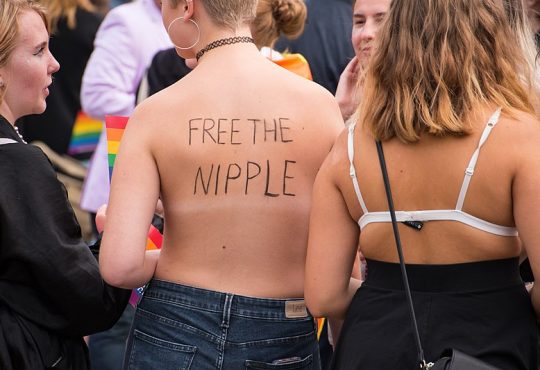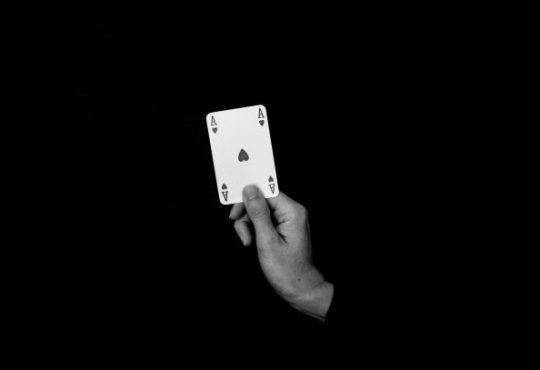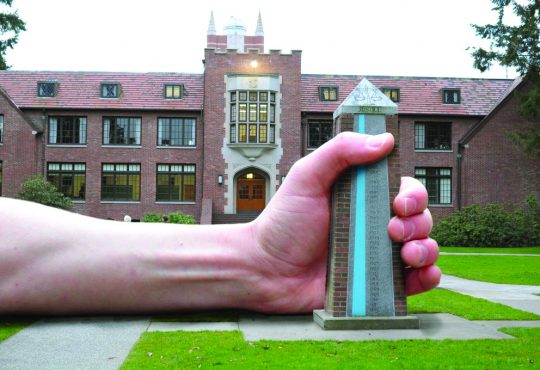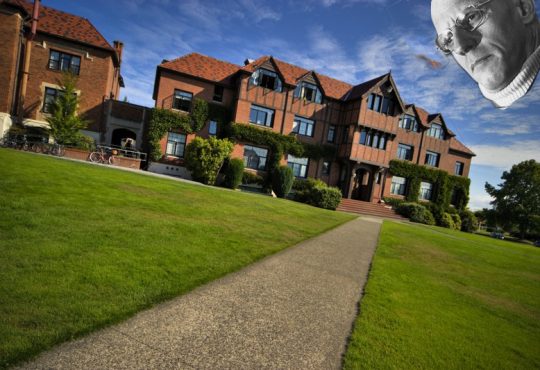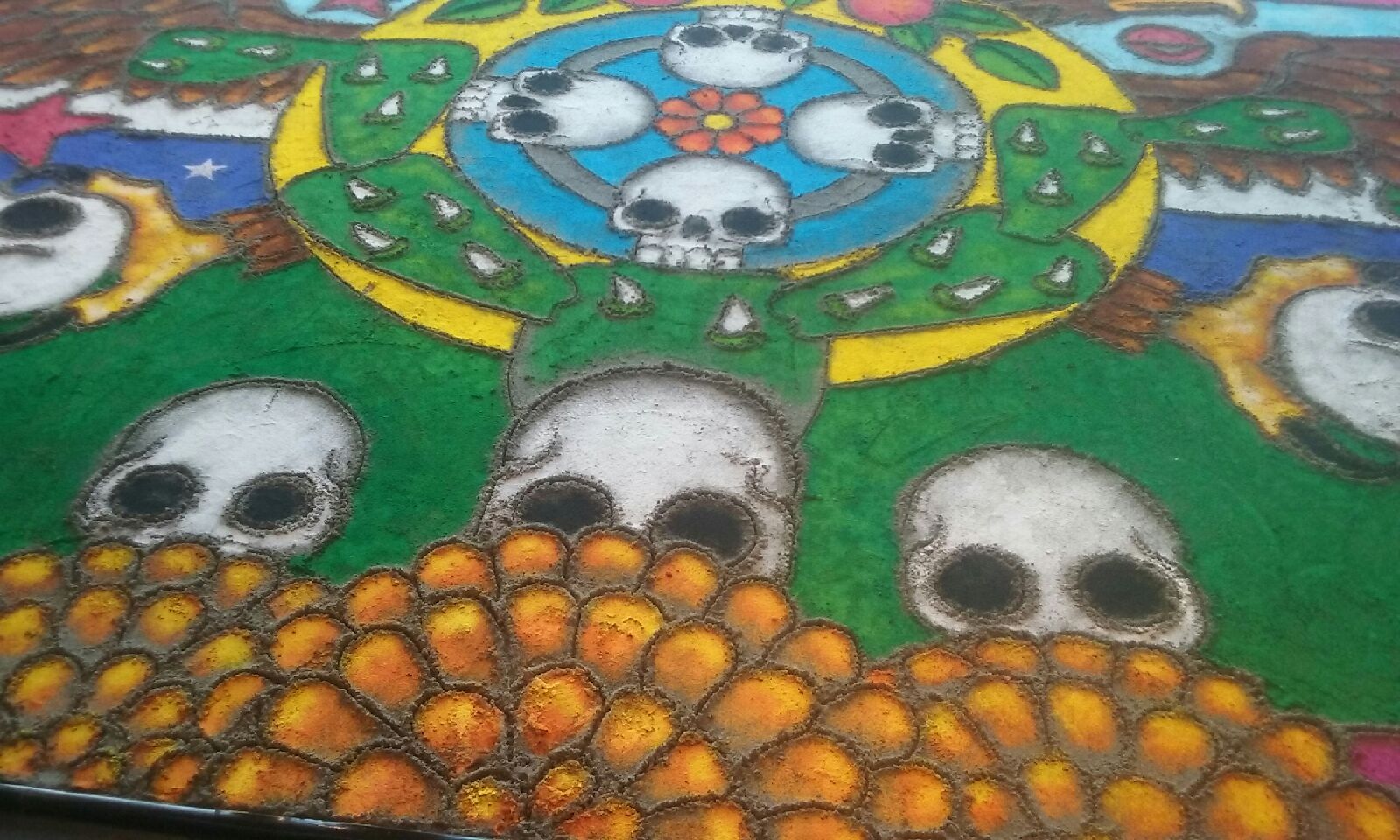Dance is an incredibly powerful action. Sometimes, in the midst of our crazy lives, we forget to take time to dance. Sometimes, even when we’re in the position to dance, we get self-conscious and forget to let go, be ourselves and let the movement permeate our beings.
This, in my opinion, is a tragedy. It’s also important to remember that while dancing can be sexy, it doesn’t have to be about sex.
I recently surveyed a few students and alumni and asked them about their relationships with dancing, why they liked it, whether they preferred to dance alone or with a partner and whether or not they felt it was inherently sexy. What they provided was an excellent look into the ways that dance can be a celebration, and how we can all turn our self-consciousness around in order to truly enjoy music in the moment.
Talison Crosby, who recently DJed at a blues dancing event organized by the club Bluesion, had this to say about partner dancing: “I definitely feel sexy when I dance, but it’s more like I’m expressing my own sexuality. I love dancing alone, too, but when you dance with a partner…you have to meet in a middle ground of tension and compromise and create something unique and beautiful that you could never create on your own.”
When asked why he loves it, Crosby responded, “I love dancing because, unlike other artistic mediums (visual art, music, etc.) there is no middle man between your creative vision and your finished product. It’s pure creative expression through your body. There are no instruments or paint brushes to get in the way.”
In describing the sensual side of blues dancing, Crosby said, “it’s definitely sexy. But it’s the energy that you share with your partner that is wonderful and sexy, rather than the physical body touching. It’s not invasive, and there is never any expectation of any kind of physical sexual contact.”
Louise Blake, an alumna with a passion for electronic music, maintained that she loves solo dancing. “It’s a form of meditation, an irreplaceable situation where you’re surrounded by people, you have this thing in common, but you’re left in your own head. In the scene I frequent, sex is the least of priorities on peoples’ minds.”
Blake described the way she experiences dancing as, “an ultimate celebration of the immediate moment. The whole body becomes an ear, hears the sound vibrations. You get into this headspace where your body starts translating what it hears…an extended audio art piece. And dance is a way to have a discussion with that. It’s about losing your ego, not about self-censorship. On the dance floor you can always tell who’s allowing themselves to have that physical conversation, versus the people who are dancing how they think they’re supposed to.”
Dance-floor-idol and senior Spencer Gordon was happy to talk about the University of Puget Sound dance scene.
“One thing I love about UPS is that there are parties where you just dance; you just go and dance the pain away,” he said, just getting started. Gordon prefers dancing by himself at parties, with ample room to break out his impressive moves.
When asked about dancing with a partner, he replied, “It depends if I’m really feeling it or not. It can bring in an awkward factor if you get off beat.” In terms of the sensual side of dancing, he maintains that it doesn’t always have to be sexual, but that, “a lot of time it is sexual in the party context.”
Carolyn Corl expressed her love for dance, saying, “When my whole body’s surrounded by sound, and I can feel that, dancing is the perfect way to process that feeling. We process music through our bodies. It can be sexual, or angry, anything.”
Corl, who has found some of her best dance experiences to be at concerts with precisely the kind of surround-sound effect she describes, says that she tends to think of dancing as, “a much more singular experience,” although she maintains that dancing with a partner can also be great.
When asked about choreographed dance, senior Scott Smith—both a dancer in RDG and a fireball on the dance floor—said, “it’s great because I can learn it and nail it, but I also love putting my own twist on the moves.” Outside of the RDG context, though, “you can lose yourself to dancing, going for it, letting loose.”
Smith maintained that he mostly prefers to dance by himself. When asked about the sensual side of dancing, he replied, “Yes, dancing can be sexy, even when you’re just dancing for yourself.”
Dancing is an outlet. It is unifying, liberating, emotional, sensual and expressive, but most of all, I believe, it is an essential part of life. So, please, go out there and find out what dancing means to you.

